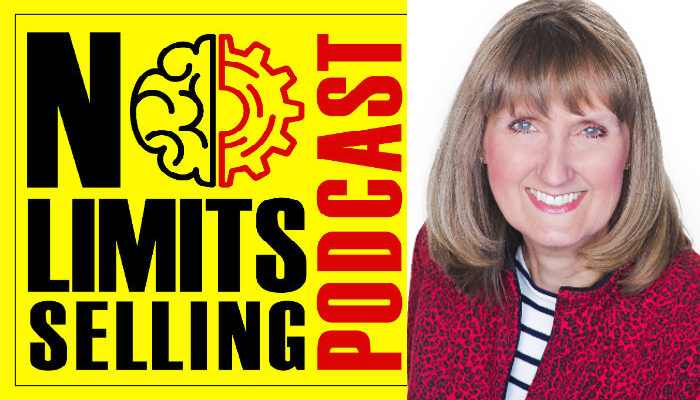Kendra Lee on Prospecting and Lead Generation
On Episode 97 of The No Limits Selling Podcast, we have Kendra Lee, president and founder of KLA Group, a world-class sales and marketing agency, and she is author of the books The Sales Magnet and Selling Against the Goal.
Once a repeat IBM Golden Circle award winner, Ms. Lee has led her organization in leading clients, including small and mid-market companies and Fortune 100 enterprises, to produce results like these...
- Penetrate new markets in as few as 12 weeks
- Increase referrals by more than 328% in just 7 weeks
- Drive new client acquisition by more than 31% year-over-year
- Generate an additional 5 prospect appointments per week per rep

Contact Kendra:
[EDITOR’S NOTE: This podcast is sponsored by No Limits Selling. It is a fun, fast-paced podcast that delivers hard-fought business advice that you can implement today to improve your sales and performance]
Interested In Our Real Estate Coaching Services? Explore Our Website: Link
Feeling Not Well Today? You Can Use Our Mindset Boosters App To amp Up Your Mood: Link
Find us on Social Media:
LinkedIn | Facebook community | Instagram
Like what do you listen to? Subscribe to our podcast!
Ready to become fearless? We can help you become fearless in 60 days so you accomplish more in your career Schedule A 15 min Call with UmarSummary
Introduction and Background of Kendra Lee
The podcast begins with an introduction of Kendra Lee, who is the author of several books including "The Sales Magnet" and "Selling Against the Goal". Kendra is the president and founder of KLA Group, a company that specializes in sales and marketing. The host commends Kendra on her clear and crisp messaging on her website, which promises more business and leads for those who need it.
The Importance of Prospecting
Kendra discusses the importance of prospecting from a salesperson's perspective. She emphasizes the need to identify the biggest issues that people are currently frustrated or concerned about. Kendra suggests that salespeople should start by understanding what their clients or prospects are grappling with at the moment. She recommends reaching out to existing clients to find out what their current issues are and what they are thankful for that your company helps them with.
Using LinkedIn for Prospecting
Kendra shares her strategies for using LinkedIn for prospecting. She suggests doing a bit of research on LinkedIn to find any commonalities with the prospect. This could be anything from attending the same school to sharing similar hobbies. Kendra also recommends using Google to find out more about the prospect, such as if they've written any articles or have been highlighted somewhere.
Setting Appointments and Follow-ups
Once an appointment is set with a prospect, Kendra advises that the real work begins. She suggests sending a LinkedIn connection invitation and sharing something interesting related to the topic of discussion. This could be a blog post, a video, or an article from a credible source. Kendra also recommends sending a calendar invitation with a specific agenda to remind the prospect about the meeting.
60 Ways to Prospect Remotely
Towards the end of the podcast, Kendra talks about a resource she created called "60 Ways to Prospect Remotely". This is a checklist of ideas that salespeople can use to prospect, many of which Kendra has used herself. She suggests trying out different ways to prospect and finding what works best for you.
Conclusion
In this podcast, Kendra Lee, the president and founder of KLA Group, shares her insights on effective sales strategies. She emphasizes the importance of understanding the immediate needs and concerns of prospects, using tools like LinkedIn and Google for research, and maintaining communication with prospects after setting appointments. Kendra also introduces her resource, "60 Ways to Prospect Remotely," which provides a variety of strategies for salespeople to connect with potential clients. She concludes by encouraging salespeople to view prospecting as an opportunity to help others by offering solutions they may not know exist, and to enjoy the process of meeting new people.
Questions & Answers
Who is Kendra Lee?
What is the importance of prospecting in sales according to Kendra Lee?
How can LinkedIn be used for prospecting?
What should be done after setting an appointment with a prospect?
What is "60 Ways to Prospect Remotely"?
What is Kendra Lee's perspective on prospecting?
What are Kendra Lee's final thoughts on prospecting?
Don’t miss this opportunity to transform your real estate career with one-on-one coaching. As an experienced real estate coach, I, Umar Hameed, am dedicated to helping you unlock your full potential and achieve your real estate goals. To learn more about who am I and my clients ↓
If you’re ready to take the next step, book an appointment with me today and begin your journey toward success in the real estate industry.
